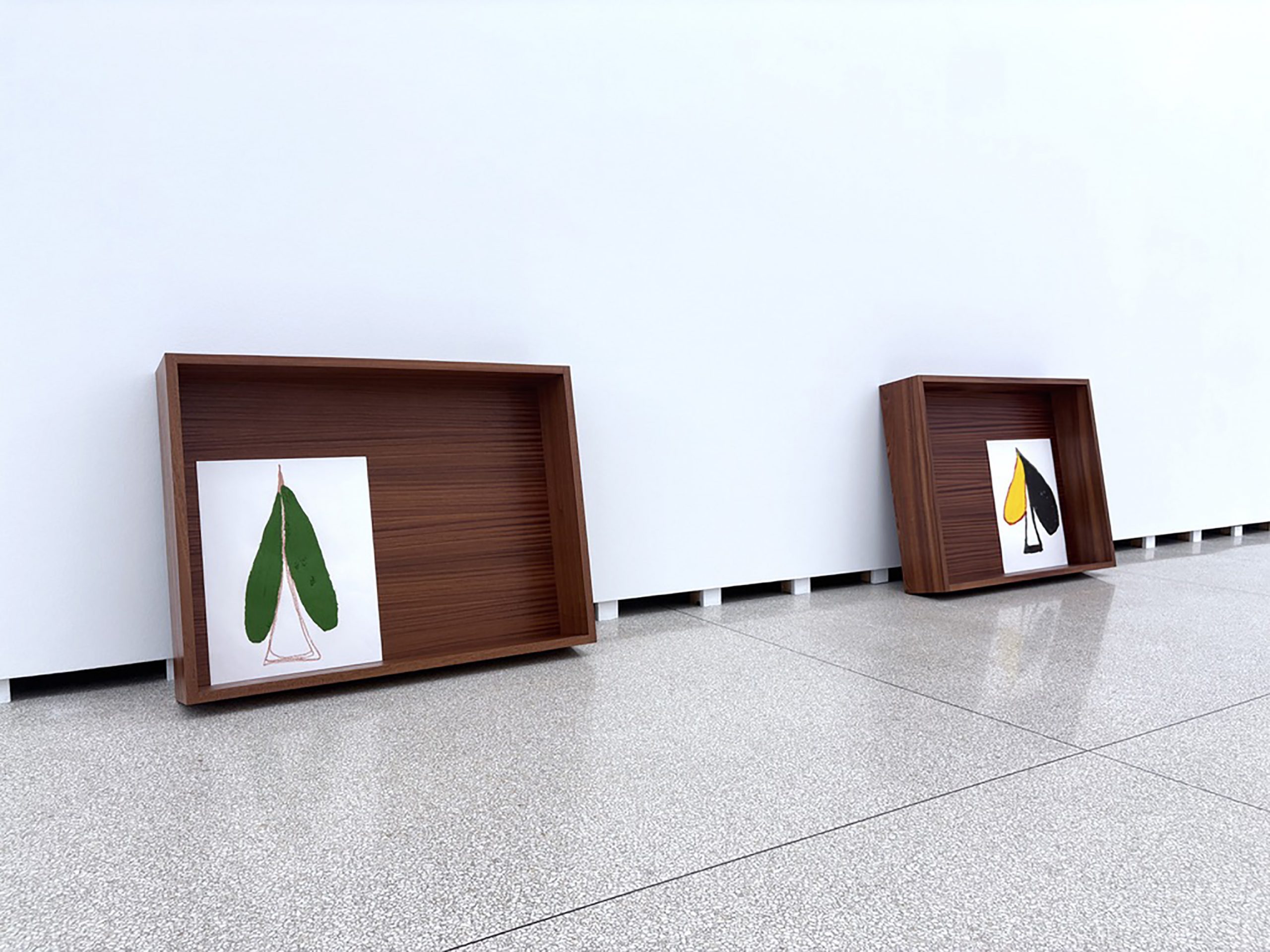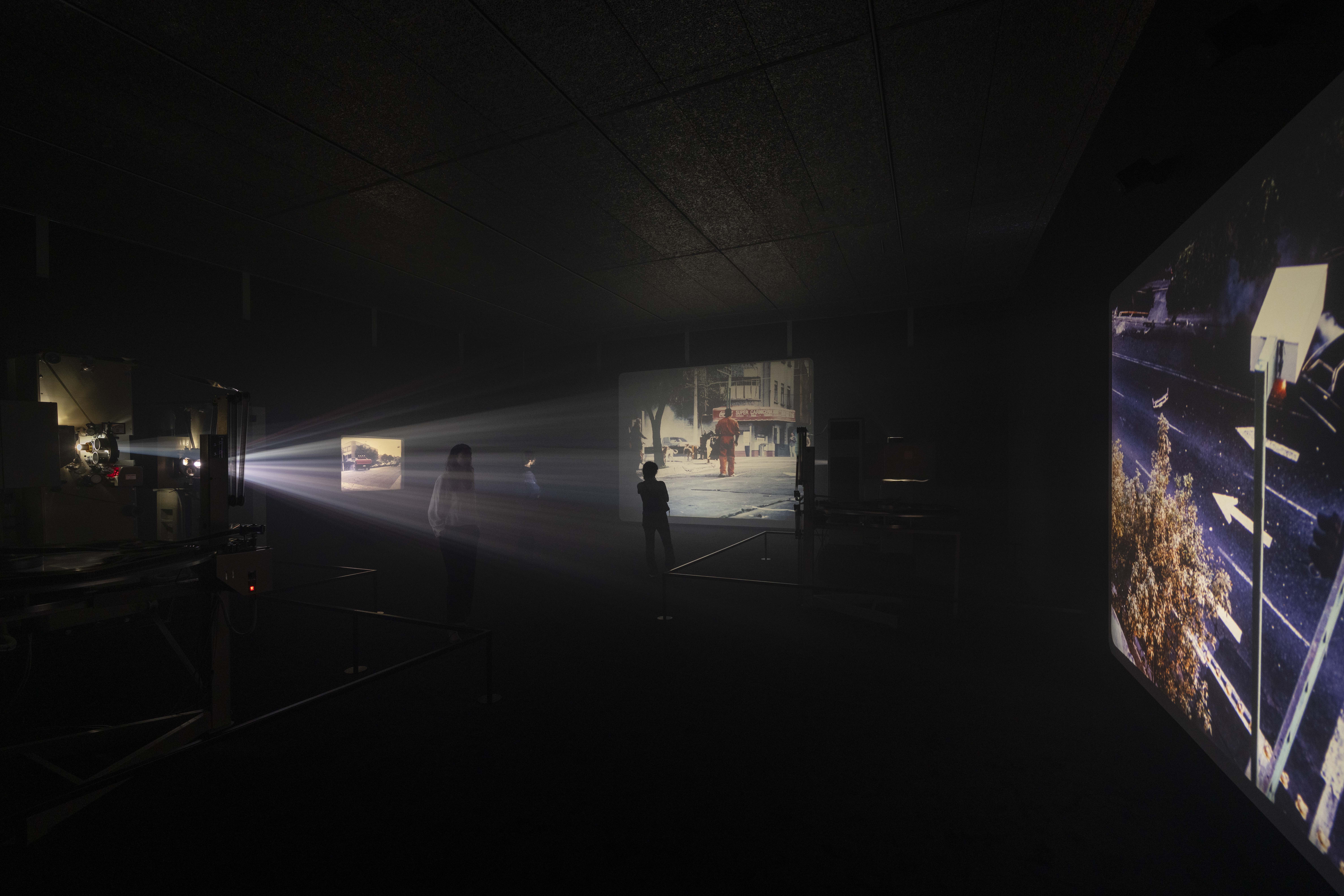At Heidelberger Kunstverein, Rhea Dillon’s Gestural Poethics makes for a curiously tranquil, yet mournful, scene. When considered against Dillon’s engagement with the lived experiences of Black individuals and communities, it quickly becomes clear that this arrangement is an analogy for the dialogues we initiate around Blackness, along with the ease with which those conversations are propped up and set down.
At the centre of Gestural Poethics is a group of works that interrogate the trope of the spade through a series of delicate, gingerly gestural oil stick forms, presented in dialogue with wooden, structural bodies. The piece depends on the observer’s gradual realisation, on their willingness to dig, and then to look upon what they’ve unearthed. At first, it comes across as a matter of “formal abstraction.” But over time, it solidifies into something more entangled, laden with historical inscriptions and the parabolic weight the spade carries within the construct of architectural racism within British society.

For over half a century, “spade” has been used as a racial slur directed at Black individuals, especially those of the Windrush Generation. Dillon, however, continually reviles and reconfigures this symbol through creative means, endowing each spade with individual, aesthetic peculiarity and dignity. She compels us to consider how the spade might be transformed, moved beyond its associations with injury and intimidation, and instead reimagined as a shield. This methodology of reinterpretation loosely aligns with Gayatri Spivak’s concept of “critical reinscription,” a mode of overwriting hegemonic narratives that does not simply dissect oppressive language, but seeks to transform its figurative register and unsettle the historical forces beneath it.

There are no overt displays in this exhibition; instead, it relies on subtlety. This quietness shifts the experience from the performative to the profoundly transformative. Dillon’s use of material as narrative deepens this impact. The sapele mahogany used in her sculptural works is heavy with historical significance. As an African hardwood, it was employed by European colonial overseers during the transatlantic slave trade in the construction of ships, transport crates, and other infrastructures of forced displacement. By evoking systems of transport and containment, Dillon’s work challenges institutional regimes of “framing,” how cultural artifacts and their makers are introduced, positioned, and interpreted.

The overarching poignancy of Gestural Poethics lies in its universality. What cannot be seen can still be felt, read, and even smelt. In her poetic works, Dillon uses encryption and intentional erasure. In one instance, a poem featured in the exhibition has some of its lines printed clearly as wall text, while others are missing, scrubbed away and reemerging only as titles of sculptural pieces dispersed throughout the space. Each creation, therefore, becomes a substitute for an absent line, prompting the observer to mentally reconstruct the poem. This method echoes techniques found in the works of Black women authors such as Toni Morrison, producing what might be seen as a poetic sequel, or even a magnum opus, composed through absence and presence.
Ultimately, with Gestural Poethics, Rhea Dillon reminds us that even the most entrenched definitions can be rewritten.
—
Gestural Poethics presents recent works by the London-born artist, poet, and writer Rhea Dillon (b. 1996). Her practice engages with the lived experiences of Black individuals and communities, placing the existential question of belonging at the intersection of ongoing reflections on racialised histories, systemic discrimination, and the enduring legacies of colonialism within Western societies and institutions.
Sabrina Roman is a writer based in London.




